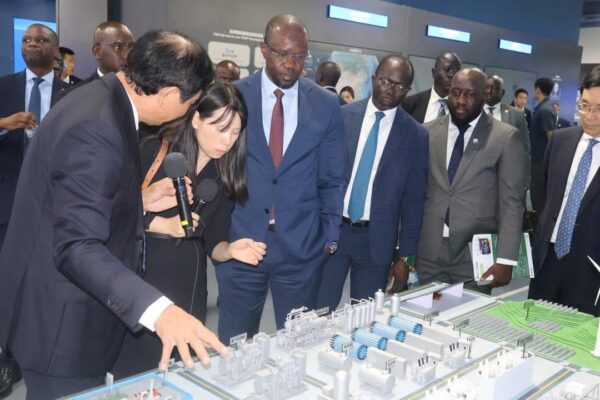During his official visit to China, which began on June 22, 2025, Senegalese Prime Minister Ousmane Sonko signed a series of strategic agreements that mark a turning point in Senegal’s ambition to modernize its transportation system. These agreements, made with Chinese public and private partners, are part of the Hangzhou Economic Forum and reflect a clear desire to accelerate the country’s energy and industrial transition.
At the heart of these commitments is a tripartite partnership between the Land Transport Development Fund (FDTT), the Urban Transport Financing Association (AFTU), and China Africa Investment and Development (CAID). Together, these entities will launch an industrial assembly and assembly unit for gas and electric buses in Senegal, in collaboration with YUTONG, a global leader in buses, and the Zhenhuai Construction Group.
40,000 vehicles to replace: an ambitious goal
This project aims to support an unprecedented national program to renew over 40,000 vehicles used in urban and intercity transport. Just for the next five years, 6,000 vehicles are expected to be replaced, according to projections from Senegalese authorities. The goal is twofold: to reduce greenhouse gas emissions and improve urban mobility conditions, especially in Dakar and major cities.
But modernization does not stop at the vehicle fleet. The agreements also include the renovation and construction of modern bus stations, rest areas, and electric and gas refueling stations, with a focus on green and sustainable infrastructure. This approach fully aligns with the fight against climate change and Senegal’s environmental commitments.
A consolidated multisectoral cooperation
For Ousmane Sonko, China is a “natural partner” capable of supporting Senegal in its quest for economic sovereignty. Apart from the transportation sector, Sino-Senegalese cooperation is expected to intensify in agriculture, industrial transformation, services, and communication technologies.
In 2022, trade between the two countries reached $4.34 billion, a 14.8% increase from the previous year. However, the trade balance remains negative for Senegal, with a gap of over 647 billion CFA francs in 2023, highlighting the need to rebalance flows and increase the value added of Senegalese exports.
Through these new agreements, Dakar and Beijing send a clear message: the development of transport infrastructure is at the heart of the Sino-African partnership of tomorrow. And Senegal aims to position itself as a regional hub for sustainable mobility and industrial innovation.


